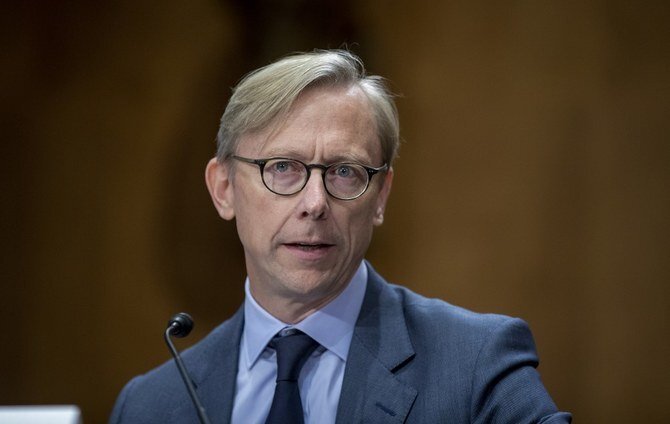Washington reiterates call for extension of arms embargo on Iran

TEHRAN — Brian Hook, the U.S. special representative for Iran, has reiterated Washington’s call for extending an expiring United Nations arms embargo on the Islamic Republic, saying the world should ignore Iran’s threats to retaliate if the embargo is extended.
Hook told The Associated Press on Sunday that the UN arms embargo, set to expire in October, has stopped Iran from purchasing fighter jets, tanks, warships and other weaponry.
“If we let it expire, you can be certain that what Iran has been doing in the dark, it will do in broad daylight and then some,” he said.
Hook made the comments while on a visit to Abu Dhabi, the capital of the U.S.-allied United Arab Emirates, as part of a Mideast tour.
The United States has stepped up calls for the extension of a UN arms embargo on Iran since April.
Under the UN Security Council’s 2231 resolution, which endorsed the 2015 nuclear deal, the arms embargo on Iran expires in October.
Despite leaving the nuclear deal and imposing crippling sanctions on Iran, the Trump administration has threatened that it may seek to trigger a snapback of all sanctions on Iran if its attempts to extend the arms embargo fail.
Hook said Tehran’s lowered revenues represented “a good thing for the region”.
“We have put this regime through our strategy on the horns of a dilemma,” he said. “They have to choose between guns in Damascus or butter in Tehran.”
“If we play by Iran’s rules, Iran wins,” Hook claimed. “It is a mafia tactic where people are intimidated into accepting a certain kind of behavior for fear of something far worse.”
“I don’t think anyone believes that Iran’s behavior merits loosening restrictions on their ability to move weapons,” Hook added.
U.S. President Donald Trump unilaterally quit the nuclear deal in May 2018 and introduced the harshest ever sanctions in history on Iran as part of his administration’s “maximum pressure” strategy against Iran.
On May 8, 2019, exactly one year after the U.S. withdrawal from the JCPOA, Tehran began to gradually reduce its commitments under the pact to both retaliate for Washington’s departure and Europeans’ failure to honor their commitments.
On January 5 of this year, Iran took a fifth and last step in reducing its commitments and said it would no longer observe any operational limitations on its nuclear industry, whether concerning the capacity and level of uranium enrichment, the volume of stockpiled uranium or research and development. However, Iran has insisted if the Europeans honor their obligations it will immediately reverse its decisions.
Last week, Foreign Minister Mohammad Javad Zarif ridiculed a claim by U.S. Secretary of State Mike Pompeo about Iran’s plan to purchase fighter aircraft.
“@SecPompeo is so desperate to mislead the world that he claims come October, Iran will purchase fighter aircraft,” Zarif tweeted on June 23.
He added, “And then send them off to the limits of their ONE-WAY ranges. Perhaps he could also say how they would fly back to Iran having exhausted their fuel.”
Zarif attached a photo of an earlier tweet by Pompeo, which claimed that Europe and Asia could be in Iran’s crosshairs if it purchases new fighter aircraft.
“If the @UN Arms Embargo on Iran expires in October, Iran will be able to buy new fighter aircraft like Russia’s SU-30 and China’s J-10,” Pompeo wrote.
“With these highly lethal aircraft, Europe and Asia could be in Iran’s crosshairs. The U.S. will never let this happen,” he added.
MH/PA
Leave a Comment